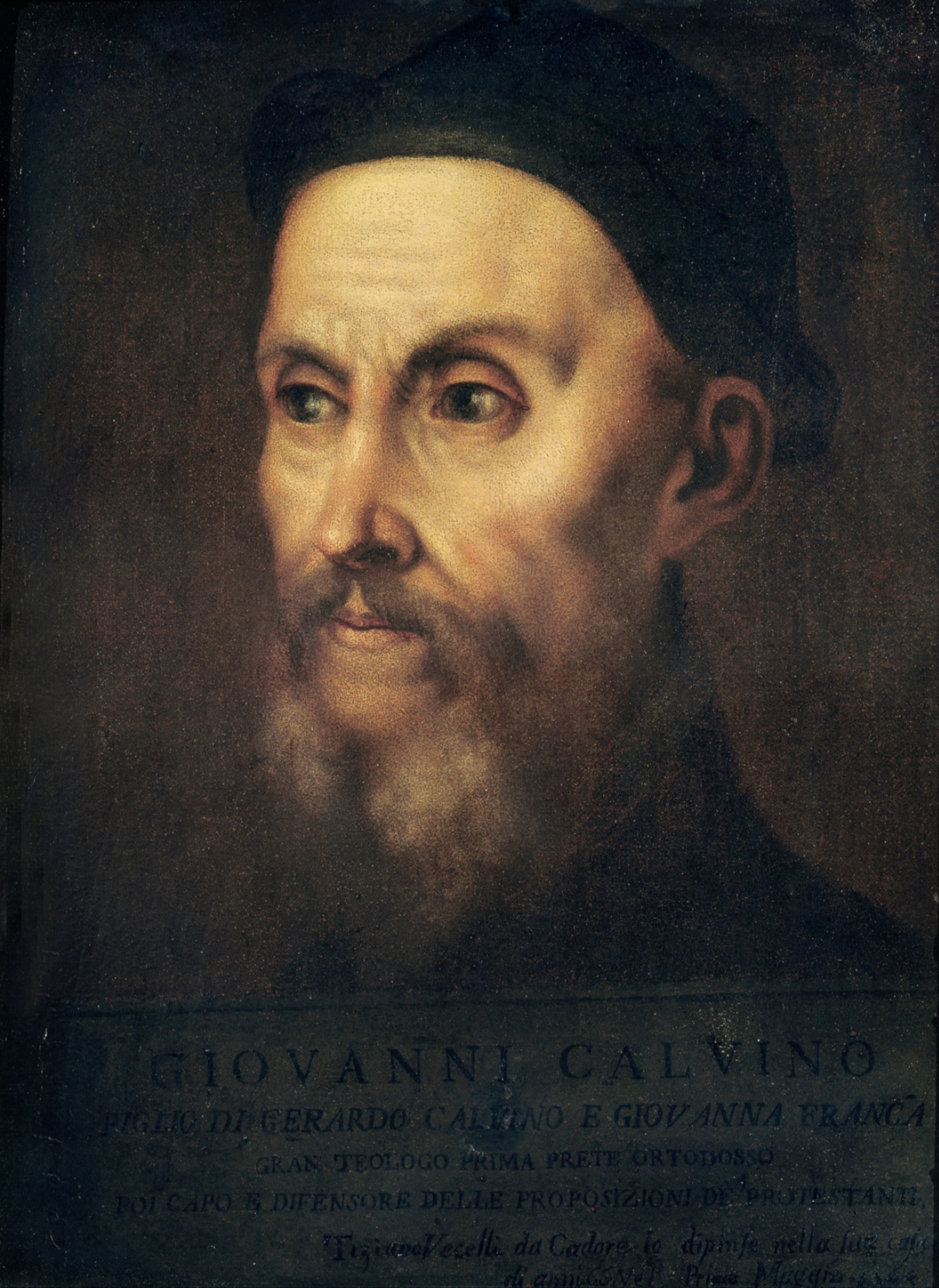Things revealed by God while others things remain with God
 |
| The Reformed Church of France, Paris, France (Photo credit: Wikipedia) |
In John Calvin's understanding, these words from Deuteronomy 29:29 serve as the equivalent of a theological "no trespassing" sign. A distinction is drawn by this text between those things that are "revealed" and those things that are "secret," and the latter are unequivocally identified as the unique property of God. To investigate such "hidden" things without license constitutes an act of intrusion upon territory very clearly marked out by God as God's own.
The Latin Vulgate, the standard Bible of the Church prior to the Reformation, had blunted the force of the distinction drawn in Deut. 29:29, translating the Hebrew original in a way that could potentially read in English as "the secret things which belong to the Lord our God are revealed to us and to our children" (abscondita Domino Deo nostro quae manifesta sunt nobis et filiis nostris). In his commentary on Deuteronomy 29, Calvin reveals his familiarity with the Vulgate's rendering of this verse, but points out that such a reading of this text is opposed "by the rules of [Hebrew] grammar."
His own translation of the verse, consistent with our modern English renderings, discovers in the verse a very clear "antithesis" or "comparison" between "doctrine openly set forth in the Law, and the hidden and incomprehensible counsel of God, concerning which it is not lawful to inquire." He comments thus upon the text: "It is a remarkable passage, and especially deserving of our observation, for by it audacity and excessive curiosity are condemned…. We know how anxious men are to understand things, the knowledge of which is altogether unprofitable, and even the investigation of them injurious. [Men] would desire to… penetrate into the deepest recesses of heaven; nay, they would search into its very cabinets."
If Deuteronomy 29:29 prohibits us from prying into some matters, it equally binds us to diligently inquire into and proclaim others—namely, those things which "are revealed." "In the first clause," Calvin explains, "Moses briefly reproves and restrains that temerity which leaps beyond the bounds imposed by God; …in the latter, [he] exhorts us to embrace the doctrine of the Law [i.e., Scripture], in which God's will is declared to us."
When God speaks, then, we have no right to act the part of the censor or the editor. Our responsibility is to dutifully listen, make every effort to understand, and to repeat the truths we learn from His Word to us to the world (in witness), to ourselves (in comfort and exhortation), and to Him (in supplication and praise). There have been those in every age of the church who have balked from speaking as clearly as God does about, for example, the prerogative which God exercises to bestow (or alternatively withhold) saving grace from undeserving sinners (cf. Rom. 9:16). Weighty theological truths such as the doctrines of election and reprobation require fine-handling, but we—unlike God—are not free to discriminate between "things… revealed" which we deem suitable for private or public consumption and those we deem otherwise.
As a general rule, however, those in the Reformed tradition have been bolder, and perhaps abler, than most in exploring and reporting upon the plains, peaks, and valleys of the territory of revealed truth. We are, I think, more prone in our circles to err on the side of excessive curiosity than that of theological reservation. Indeed, we are likely to overlook entirely the moral imperative not to indulge every theological question we might have which Deut. 29:29 places upon us. We respond to God's intellectual "no trespassing" sign in ways we might respond to a physical "no trespassing" sign encountered in a stroll through the woods—either we cross it for the mere pleasure of standing where someone has bid us not to, or we creatively re-position the line implied by the sign in order to justify our current location and/or create slightly more room for us to roam.
So, for example, we might take the biblical truth of election and reprobation as a starting point, and from that revealed truth begin asking questions (and worse, arriving at answers) which Scripture never entertains—questions about, say, the basis, beyond God's mere pleasure, of God's discrimination between the elect and the reprobate, or about the ultimate reason, beyond God's mere pleasure, that God elected some and passed over others at all. Interestingly, it is precisely with a view towards such unrestrained speculating about predestination that Calvin invokes Deut. 29:29 in his Institutes of the Christian Religion, reminding his readers that pursuing any "knowledge of predestination [beyond] what the Word of God discloses is not less insane than if one should purpose to walk in a pathless waste, or to see in darkness." In one of the most memorable passages in the Institutes, Calvin continues: "Let us… permit the Christian man to open his mind and ears to every utterance of God directed to him, provided it be with such restraint that when the Lord closes his holy lips, [man] also shall at once close the way to inquiry."
It is, admittedly, no easy task to determine exactly where the boundary between revealed (and thus licit) truths and hidden (and thus illicit) truths lies. That itself is an issue which requires greater attention in Reformed theological discourse. Let us, however, at the very least acknowledge the point that Deut. 29:29 does place upon us a moral obligation to restrain ourselves from some lines of reasoning/inquiry into matters related to our Triune God and His works of creation and providence. God has, in fact, posted a "no trespassing" sign at certain points where our minds are (sinfully) prone to tread. The existence of that sign as such, wherever exactly it stands, should prompt considerable humility and trepidation on our part as we seek to faithfully understand and know our holy God and His ways.

